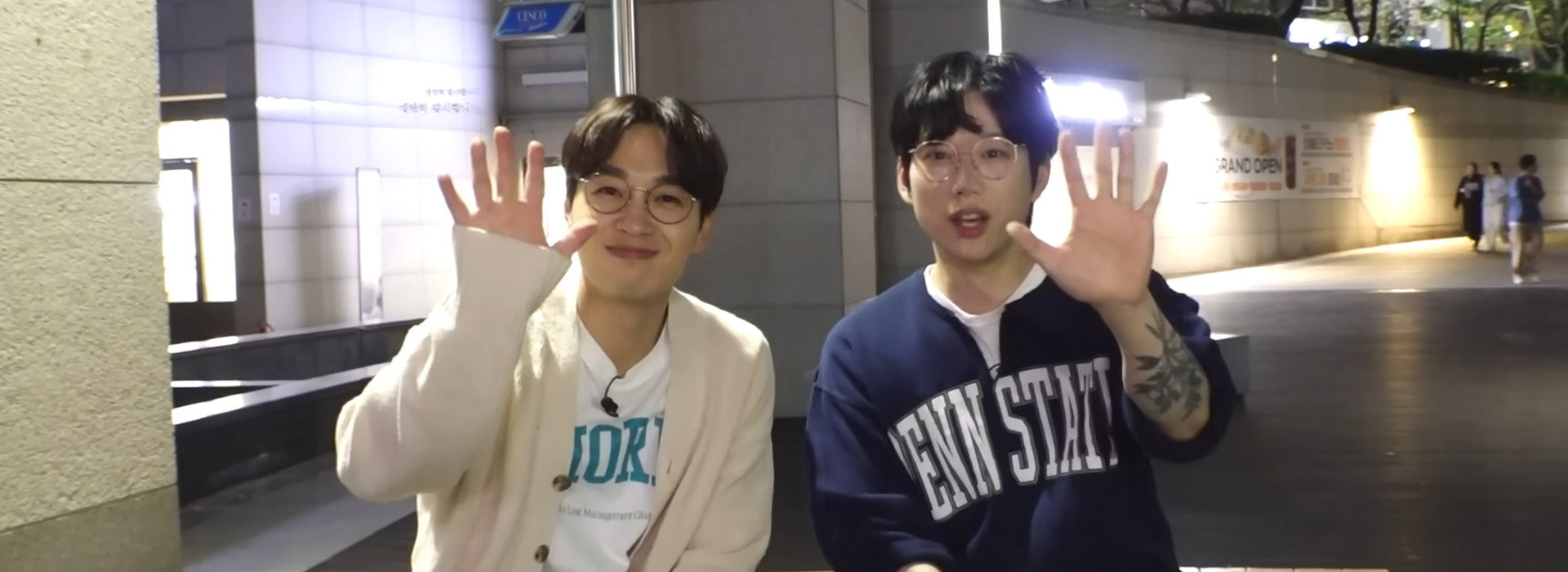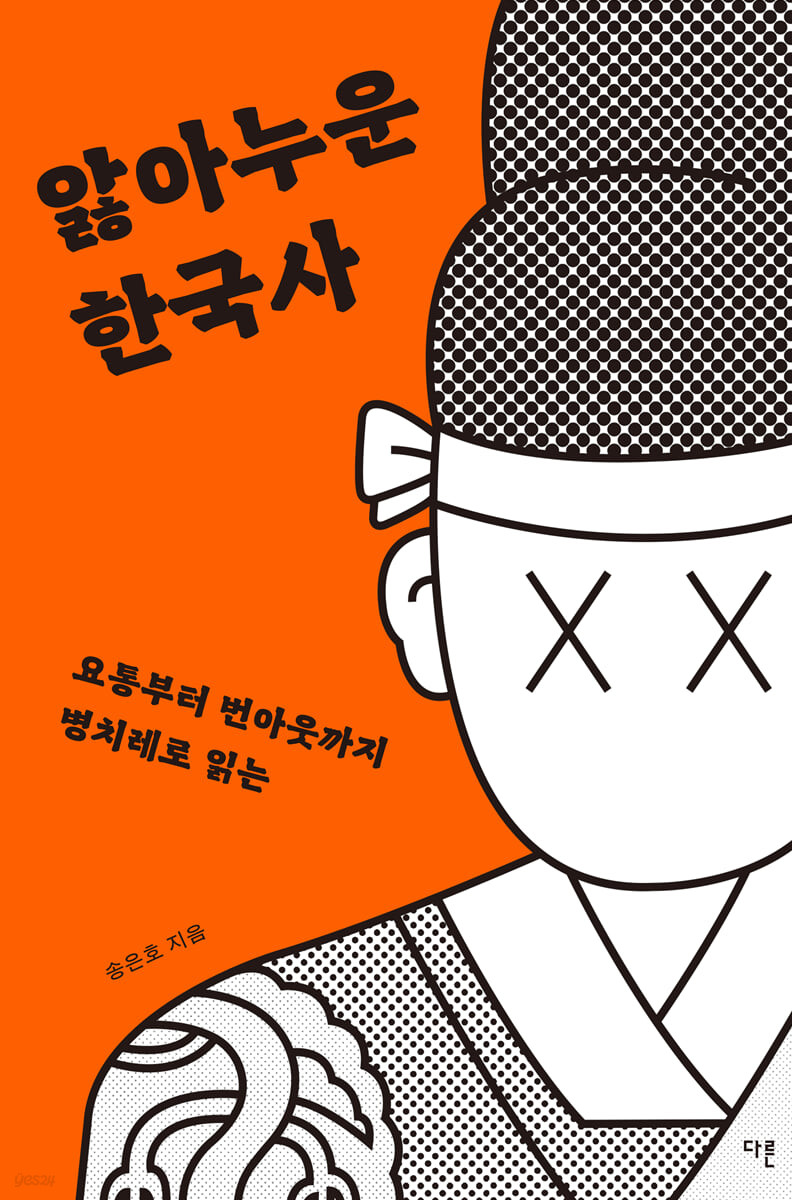
NoW
Always look on the Ssulply side of life
Recommendations for this week
2023.05.12
Credit
Article. Oh Minji, Im Sooyeon (CINE21 Reporter), Randy Suh (Music Writer), Kim Gyeoul (writer)
Design. Jeon Yurim
Photo Credit. Ssulply Youtube
Ssulply
Oh Minji: Contrary to its own description on YouTube as “a philosophy channel asking in-depth questions about life through a humanist lens,” Ssulply actually takes a look at the lighter side of life through interviews with random people on the street, lobbing them easy questions about things that everybody’s experienced at least once, like living life “half-assed,” looking for a new relationship, feeling worn down by hyper people and dealing with real-life villains. Anecdotes include someone who decides to get over heartbreak by working on her chest muscles; someone else in a band whose job is “being in the band” because she doesn’t play any instruments but still loves to hang out with them; another person who, when given the option to either donate one million won or kiss her brother on the cheek, frowns and simply replies that she hopes the money “goes to a good cause”; and someone who’s been carrying around her empty tennis racket bag until she collects her next paycheck and can afford to put a racket inside. It makes you wonder, as many of the comments on the videos do, how they ever find individuals with such unusual stories in random person-on-the-street interviews. The interviewees are just ordinary people but they all come armed with their own quirky stories and attach a song to them, which the channel then compiles into a playlist. It helps remind us that there’s fun to be found in the ordinary and gives us a chance to relate to others while we watch. It’s a great show for everyone and lets us step into the shoes of someone else for a while as we enjoy their stories. We live in a time when life and music are inseparable, and Ssulply not only gives you something to watch while you eat, but a nice playlist to listen to while you do the dishes after too.
The Super Mario Bros. Movie
Im Sooyeon (CINE21 reporter): Da-dah dah da-dah dah, dah! Anyone who’s ever played a Super Mario game has surely been curious why Mario, played in the new movie by Christ Pratt, gets sucked into pipes leading him through the Mushroom Kingdom, where exactly the Dark Lands his brother Luigi (Charlie Day) was trapped in is, how Bowser came to be the main villain of the series and how he kidnapped Luigi, got hold of the Super Star and put the whole world in peril. The Super Mario Bros. Movie is an animated film about the origins of the Super Mario universe that we’re so familiar with. The movie focuses less on narrative and more on giving the audience the experience of playing a video game right in the theater, stuffed with the charming characters and overflowing excitement one can expect from the Super Mario franchise. Some have criticized the movie for hardly being like a movie at all but it’s a success from the perspective that it’s exactly what the audience is looking for. It also set various records upon its release in North America, becoming the highest-profiting video game movie ever released and the best opening figures for an animated film ever.
“AMYGDALA” - Agust D
Randy Suh (pop music critic): Even among all the amazing tracks off SUGA’s album D-DAY, “AMYGDALA” stands out. The song’s dominated by its electric guitar, pushing it into alternative rock territory. His vocals, however, are put through an autotune filter to purposely grate on your hearing a bit. In the song, SUGA goes through different tragic episodes from his life—difficult times that have likely imprinted themselves on his amygdala—starting with the day he was born. It’s not an easy song to listen to. Agust D functions as a metacognitive tool through which SUGA can dissect and analyze himself relentlessly.
Confronting pain using rationality and logic is a defense mechanism called intellectualization. The inherent drawback to this approach is that it makes it difficult to face emotions head-on. But when other people can approach and interact with that pain, the healing can begin for the person experiencing it in the first place. That’s why we as humans seek out communication with others and express ourselves. According to “Anydala,” the only way to finally reach D-day—the day when the hurting finally stops—is to open up about his emotions and let listeners in completely so they can understand him.
The chorus is mostly in a minor key but ends on two bright major chords: “Please save me (II Maj) … Please let me out (IV).” The contrast with his pained singing is a sort of musical representation of the image of a lotus flower blooming in mud as described in the album’s title track. It also shares its chord progression, vi–(I)–II Maj–IV, with the opening of “Stop Crying Your Heart Out” by Oasis. In Oasis’ song, the II Maj chord is punctuated by the words, “don’t be scared.” When you can feel reassured that you’re not alone, fear and pain recede into the background.
A Bedridden History of Korea (Song Eunho)
Kim Gyeoul (writer): If you could travel through time, would you choose to go forward or backward? People who choose the future usually say it would be too difficult to bear the challenges of the past, like all the discrimination, poor sanitation and lack of medical infrastructure. If you get sick these days, you have options for first aid at home for less severe problems, and it’s relatively simple to go to the hospital and identify the root cause of your symptoms, but none of that was possible in the past—and there wasn’t any anesthetic, either. But the human body is still as fragile today as it was back then. How did people ever cope with sickness in the past? It would’ve been an awful experience even for royalty, who would have been given only the most comprehensive medical treatment available at the time. King Sunjong, who was nearly assassinated with opium-laced coffee, had always been frail and suffered from irritable bowel syndrome his entire life. There’s also King Jeongjo, who spent many a sleepless night in a state of constant anxiety over fear of assassination, as well as King Sejong, who was a known workaholic despite his spinal arthritis and diabetes. The solemn dignitaries we read about in the history books and see played in historical dramas all suffered from hardship just like everyone else. Even today there are plenty of people who can’t visit a hospital when they’re sick, and I imagine they’ll feel a kind of amused commiseration while reading this book. If only Admiral Yi Sun-shin had had access to antidiarrheal medicine.
Copyright © Weverse Magazine. All rights reserved.
Unauthorized reproduction and distribution prohibited.
Unauthorized reproduction and distribution prohibited.
